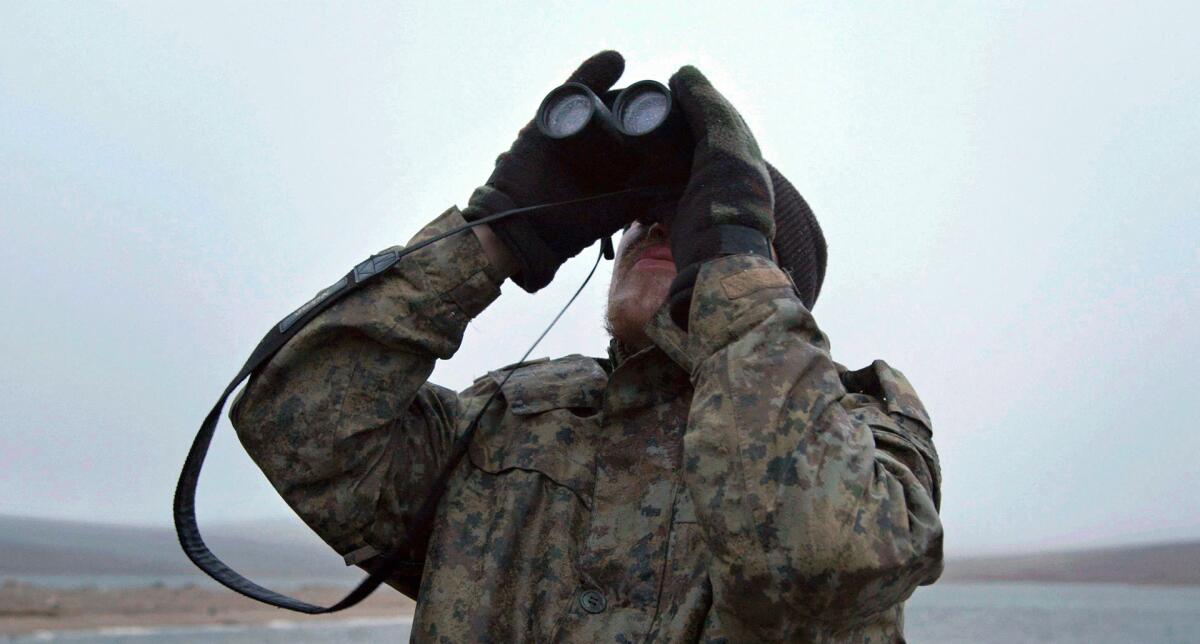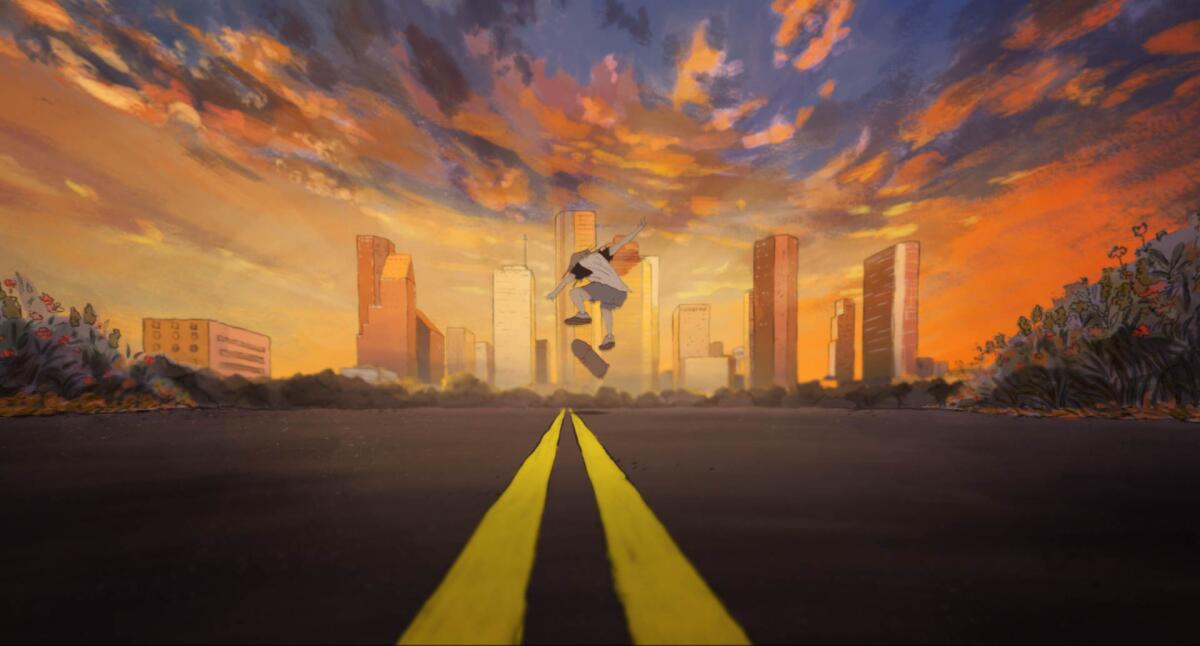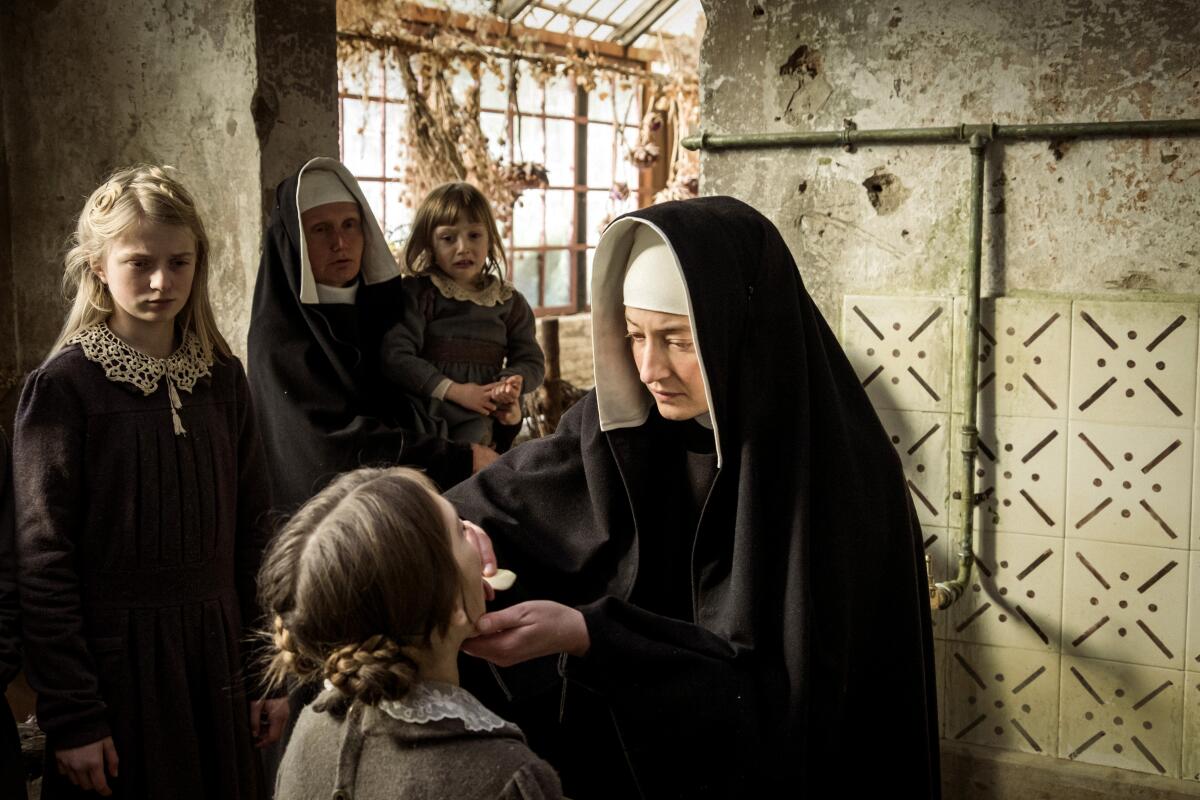Review: Compassion, imagination and defying expectations highlight Oscar-nominated shorts

All hail the short film, where the tools, canvas, themes and artistry can be no different as for a feature, but the only restriction is time. Short films may be less widely seen than the longer kind, but the three Oscar categories devoted to the form provide a welcome spotlight on what makes them special.
The documentary nominees this year are a compassionate bunch marked by the effect of time and change on lives, literally so in Jay Rosenblattâs âHow Do You Measure a Year?â in which 17 years of birthday interviews with his daughter Ella â from 2 to 18 â are condensed into a fatherâs loving document of a young womanâs maturing consciousness. A different archive â of news and interview footage â and female viewpoint distinguishes âThe Martha Mitchell Effect,â from Anne Alvergue and Debra McClutchy, a gripping portrait of political sexism as the whistleblowing Nixon-era cabinet wife goes from beloved truth-teller to conspiracy scapegoat.
For your safety
The Times is committed to reviewing theatrical film releases during the COVID-19 pandemic. Because moviegoing carries risks during this time, we remind readers to follow health and safety guidelines as outlined by the CDC and local health officials.
The journey from hate to forgiveness is given the shocking-twist treatment in Joshua Seftelâs carefully laid out âStranger at the Gate,â in which a scarred Marineâs thirst for bloodshed is transformed by radical kindness. The Indigenous couple of Kartiki Gonsalvesâ India-set âThe Elephant Whisperersâ were already generous souls when cameras arrived to capture their work restoring orphaned Asian elephants to full health. Though overedited and overscored, in its depiction of interspecies coexistence itâs a heartfelt, if simpler, companion piece to the feature documentary nominee âAll That Breathes.â
In the gut punch âHaulout,â meanwhile, vanishing sea ice creates an overwhelming new reality for a yearly migration on the Siberian Arctic coast, as witnessed by a solitary man with a grim task, and followed by filmmakers Evgenia Arbugaeva and Maxim Arbugaev. In the apocalyptic awe of this stark filmâs dominant, unforgettable visual â a true shock to the eyeballs, its aftermath heartbreaking â is, one fears, a somber harbinger for us all.

In animation, where imagination can rule, a creature with a warning may get to literally voice its concern. Set in an office â and, cheekily, an office set â the stop-motion âAn Ostrich Told Me the World Is Fake and I Think I Believe Itâ is Lachlan Pendragonâs charming take on his art as a potentially âMatrixâ-like experience for his creations. But in the case of âThe Boy, The Mole, The Fox and The Horse,â Charlie Mackesyâs handsomely hand-drawn adaptation (with Peter Baynton) of his own snowy childrenâs tome, the animal talk â with voices including Tom Hollander, Gabriel Byrne and Idris Elba â is a cloying litany of lessons (âDoing nothing with a friend is never doing nothingâ). Itâs admirably delicate, but more like a storybook comprised solely of last pages.
Silent figures in catastrophic scenarios make up two other animation nominees: JoĂŁo Gonzalezâs âIce Merchantsâ and âThe Flying Sailorâ from Amanda Forbis and Wendy Tilby. The former â mysterious and melancholy, cautiously colored â imagines a widower and his son living in constant chill on a precarious cliff-face dwelling from which they parachute into a village to sell ice. The latter, extracting avant-garde whimsy from believe-it-or-not history, considers the miraculous sky-arcing trip of the most memorable survivor of a real-life 1917 harbor explosion in Halifax, Canada.
This categoryâs standout, however, is the deliciously heart/mind/libido-driven âMy Year of Dicks,â a witty, style-shifting scrapbook of lust, love and loserdom adapted from Pamela Ribonâs memoir about trying to lose her virginity in the wanting teenage-boy landscape of early â90s Houston. Sara GunnarsdĂłttir, who memorably created the animated sequences for âThe Diary of a Teenage Girl,â pins genuine feeling to Ribonâs sardonic angst with a fantasy-fringed realism, and the result is as memorable as any spiky, feature-length adolescent rom-com.

The pull of freedom, and defying whatâs expected, marks this yearâs live-action shorts. The agreeably eccentric if emotionally schematic âAn Irish Goodbyeâ from Tom Berkeley and Ross White concerns a tension-filled reunion between two surly brothers â one with Down syndrome, the other his keeper â who must reconcile each otherâs notions of independence in the wake of their motherâs death. The sibling divide is grimmer in âIvalu,â from previous category-winner Anders Walter, about a young Greenlandic Inuit girl on a quest to find her missing sister, an enthralling poignant voyage of landscape and memory until it segues bumpily into hidden trauma.
Two other shorts address societal suffering with varying results. Give Eirik Tveitenâs âNight Rideâ props for a punchy setup â an impatient commuter in the freezing cold commandeering a driverless tram â and a head shake for how it hijacks a serious issue to become moralistic oatmeal. Empathetic, visually acute storytelling distinguishes Cyrus Neshvadâs timely thriller âThe Red Suitcase,â in which an anxious Iranian girl at Luxembourgâs airport chooses to remove her hijab, generating one of the more heart-rending, stomach-clenching scenarios Iâve seen in years.
And then thereâs the short with everything: style and atmosphere, mirth and sadness, angelic faces and wicked thoughts, nuns and a countess, Alfonso CuarĂłn as producer and the moment of truth only a red, cream-filled, 70-egg cake can spur in a strict Catholic boarding school during a wartime Christmas. The beguiling âLe Pupilleâ from gifted Italian filmmaker Alice Rohrwacher (âHappy as Lazzaroâ) is an all-girl shoutout (and at times, whimsically scored sing-out) to Jean Vigoâs child-anarchy classic âZĂŠro de Conduiteâ by way of this sublime artistâs own appealing affinity for youthful frolic and fate. Given grainy, old-world Super 16-millimeter authenticity by masterful cinematographer HĂŠlène Louvart and featuring Rohrwacherâs talented sister Alba as the vigilant mother superior, this is a confection to savor â equal parts innocence, rebellion and spongy goodness.
2023 Oscar Nominated Short Films
Not rated
Documentary program: 2 hours, 46 minutes
Animation program: 1 hour, 37 minutes
Live Action program: 1 hour, 55 minutes
Playing: Starts Feb. 17 in general release
More to Read
Only good movies
Get the Indie Focus newsletter, Mark Olsen's weekly guide to the world of cinema.
You may occasionally receive promotional content from the Los Angeles Times.










